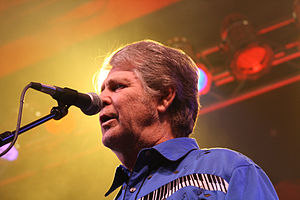Piano Sheets > Brian Wilson Sheet Music > All Summer Long (ver. 1) Piano Sheet
All Summer Long (ver. 1) by Brian Wilson - Piano Sheets and Free Sheet Music

About the Song
All Summer Long is the sixth studio album by The Beach Boys and their second in 1964. Recorded in the aftermath of the British Invasion, spearheaded by The Beatles, the album marked a major turning point in The Beach Boys' career, and in leader/prime songwriter Brian Wilson as an artist.
All Summer Long hit #4 in the US during a 49 week chart stay. All Summer Long (Capitol (S) T 2110) is now paired on CD with Little Deuce Coupe, with bonus tracks from that period.
Beginning in February 1964, Wilson engaged in a rigorous period of songwriting, emerging some weeks afterwards with songs including "I Get Around", "All Summer Long", "Wendy" and "Girls on the Beach". The Beach Boys dubbed their vocals over the instrumental tracks performed by session musicians, all produced by the 21-year-old Wilson. Brian Douglas Wilson (born June 20, 1942 in Inglewood, California) is a Grammy Award-winning American.
Download this sheet!
About the Artist

Random article
How to read sheet music How to read sheet music
Reading piano sheet music is no simple thing. For it first we require to know the individual elements of the composition itself in order to read sheet music. You must make sure that you are familiar with that particular composition's language before you tackle the entire piece.
In order to grasp the intent and nuances of the piece quickly for reading piano sheet music following steps are to be considered:-
1> To start with have a look over entire composition to get the feel of the length and style of the sheet music. This first run through is just to have a quick overview of the composer's work. This will slowly prepare you to read the sheet music.
(More...)
